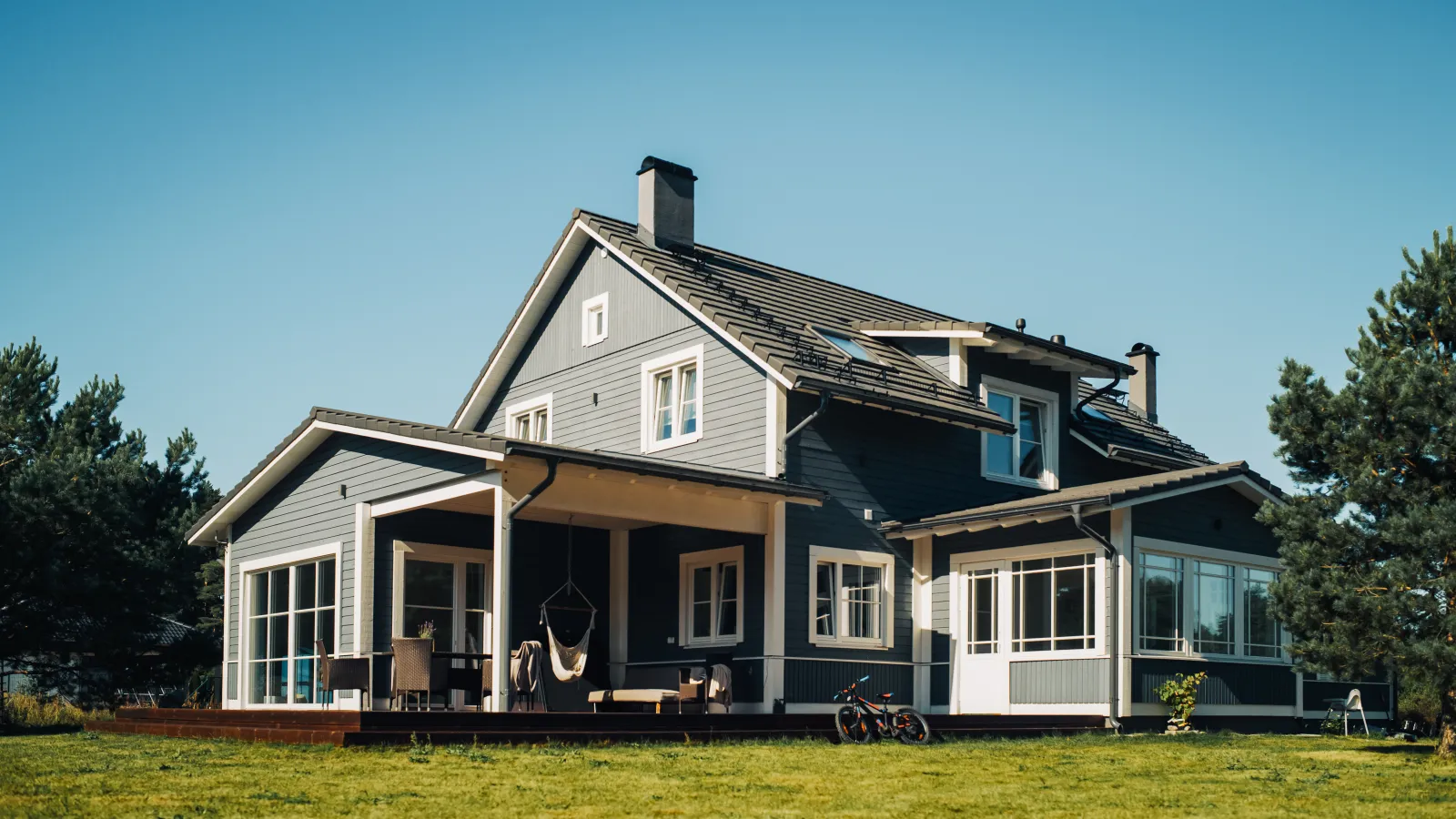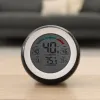Something stinks. It kind of smells like… dirt. Maybe you’d describe it as “earthy,” or perhaps it’s just flat-out musty.
Whatever it is, it’s not pleasant.
And you’re smelling it inside your house, a place where you’re supposed to be surrounded by clean air! You suspect you’re smelling your crawlspace. Or, if you’ve got one, your basement. But how is the smell infiltrating your living space, and what can you do about it?
Understanding air leaks
While there are different reasons you might be smelling crawlspace or basement air, this is one of the most common: lots of air leaks between the part of the home you live in and the part beneath your home’s bottom story.
By “air leaks,” we’re referring to gaps and cracks around HVAC ducts, plumbing pipes, and electrical wires. Through these little openings – cumulatively, they’re often big openings – air from the crawlspace or basement can enter your living room, kitchen, bedrooms… wherever.
But why doesn’t the air just stay down there? Why does it migrate upwards?
Most of the time, this air rises from your crawlspace into your home thanks to the mechanics of mother nature. Dense air below your bottom level tends to push less dense air upward. You might know this phenomenon as the stack effect or the “warm air rises” maxim.
Actually, warm air moves up, down, or side to side depending on conditions, but that’s another article…
Similarly, humid air migrates to areas where the air is drier. Since the air in your crawlspace is more humid than the air inside your home, it infiltrates your living space.
These conditions effectively push air from below your home (through those little gaps and cracks) inside and into your lungs. A good way to address this problem is usually to…
Seal the gaps and cracks between your home and your crawlspace or basement
Using a blower door and thermal imaging equipment, a home performance professional can identify the areas of greatest air leakage throughout your home. After that, the professional (or maybe a crew) will seal all areas of air infiltration, usually prioritizing the biggest leaks.
Why does this work so well? Because the air can’t migrate upward into your home anymore.
The points of entry are all sealed off! Instead of getting into your house, the humid, earthy-smelling air stays down below you, where it belongs.
Doing this and nothing else may very well get rid of the bad smell. But what do you do if it doesn’t?
Seal your leaky air ducts
While air leaks between your lower floor and your basement or crawlspace are often the source of a noxious smell inside your home, leaky ducts may also be part of the problem. Ideally, you’ll seal your leaky ducts at the same time you’re sealing the other air leaks.
How might air ducts bring a crawlspace-y smell into your home?
If your HVAC system’s indoor unit lives in your basement or crawlspace, that means you’ve got ductwork down there. And if the return side of that ductwork (the part that brings air into the system) isn’t sealed tightly, it’s probably sucking air from the crawlspace or basement into the system.
Where is that air ultimately deposited? Throughout your home, of course.
By sealing the ducts, you can prevent the system from bringing in crawlspace air and distributing it to your living room and bedrooms.
Unfortunately, duct sealing isn’t always as simple as slapping some tape on the ducts. A professional should perform a “duct blaster” test, which involves using special materials and equipment to identify duct leakage.
When we perform duct blaster tests and seal accordingly, we also measure the amount of duct leakage afterward to confirm our efforts are bearing fruit. It’s how we’re able to reduce duct leakage down to 4% every time.
ks
Is that all there is to it? Are air infiltration and duct lea the main issue here?
In most cases, yes! However, other conditions might lead to a crawlspace smell getting into your home. Negative air pressure is one of them.
Your home is under negative pressure whenever air is being removed from the home without an equal or greater amount of air being introduced to the home.
Here are a few things that can cause negative air pressure:
- Running a clothes dryer
- Turning on a kitchen fan while cooking
- Flipping on the bath fan during a shower
- Running an attic ventilator fan
- Windy conditions outdoors
- Imbalanced HVAC ductwork
These things tend not to be the main cause of an unpleasant crawlspace or basement odor, but they can exacerbate it when the house is already really leaky. Sealing the leaks and sealing your ducts is still the best route, at least most of the time.
Of course, you’ll be getting air infiltration from other places (the outdoors, most likely), which can cause indoor humidity to spike. But at least you won’t smell your crawlspace.
Note: There’s a chance that whatever it is you’re smelling is coming from your HVAC system. You might have what we call dirty sock syndrome, in which microbial growth on the AC coil is making your house smell bad. An HVAC professional will be able to examine the coil and determine whether this is the problem.
Addressing the root cause
More often than not, a combination of air sealing and duct sealing will get rid of the earthy or musty smell inside your home. But it won’t stop the smell itself. When you go below your home, the conditions that led to the smell will still exist. Nor will duct sealing and air sealing address other issues that arise from pressure imbalances indoors.
Humidity in your crawlspace
Most crawlspaces around Atlanta are vented to the outdoors. As such, they’re just as or more humid than the outside air. For most of the year, these crawlspaces are dark, damp, wet, and warm – the perfect environment for mold and other microbial growth.
Roaches, mice, camel crickets… those, too.
Anyway, many homeowners choose to go beyond just getting rid of the crawlspace smell inside their houses. They want to make their crawlspace a clean, dry environment so that:
- Mold can’t grow there
- Insects don’t like it
- HVAC equipment operates more efficiently
- It doesn’t stink
Crawlspace encapsulation is the best option here. A team of home performance pros removes any existing mold on the crawlspace walls or floor joists. Then they install a plastic vapor barrier on the crawlspace floor, insulate the walls, seal off the vents and all air leaks, and install a dehumidifier.
For more info, check out our guide to encapsulating your crawlspace the right way.
With these changes, the crawlspace stays clean and dry throughout the year. You won’t have to worry about nasty smells because they won’t stink inside your crawlspace anymore. And since temperature and humidity will be better regulated down there, you’ll pay less to heat and cool your home.
There’s only time you should not attempt to solve these problems by encapsulating your crawlspace.
If you have atmospheric combustion appliances (e.g., a furnace and/or water heater powered by natural gas) under your home, you’ll need to keep the crawlspace vented for safe combustion. Sealed combustion appliances are fine, but standard 80% AFUE furnaces? Not so much. Those systems need to be in a well-ventilated environment. Otherwise, you risk having a carbon monoxide (CO) leak.
Note: Occasionally – and this is not common – you might smell something nasty from your crawlspace even after it’s encapsulated. When this happens, we can install a small fan inside the crawlspace. This fan puts the crawlspace under slight negative pressure so that the air inside isn’t moving into your home.
Managing air pressure
Sealing air leaks prevents crawlspace air infiltration, but it doesn’t do anything to fix a negative pressure issue. If anything, it might make the negative pressure problem worse! Sure, you won’t be smelling your crawlspace anymore, but you’ll still be bringing in air from the outdoors.
In our region, that means lots of hot, humid air will enter your home. What’s to be done?
One solution is a ventilating whole-house dehumidifier. These systems interface with your HVAC ductwork and remove moisture in your home every time the relative humidity spikes above a set threshold.
They also provide fresh air ventilation via positive pressure. So, you’re pushing fresh, filtered, dehumidified air into the home rather than removing air from the home only to replace it with unconditioned outdoor air.
Another option is an ERV mechanical ventilation system, which is a particularly good option for well-sealed, airtight houses. The ERV brings in and removes air in equal amounts; thus, it provides fresh air without pressurizing your home.
Of course, if you want to counteract negative pressure, the ERV can be configured to provide some positive pressure as well. It all depends on your home’s attributes and your air quality needs.
The end goal? Cleaner, fresher air.
There are different ways to get there, and every home will require a unique solution. Sometimes, it’s as simple as sealing a few air leaks. Other times, you’ll need an ERV to provide fresh air or some other system to mitigate pressure imbalances.
If you’re smelling your basement or crawlspace inside your Atlanta area home, we can help! An experienced air quality consultant will visit your home, perform an analysis, and recommend the best solution for solving the problem.
Give us a shout today, and we’ll get something on the schedule!






